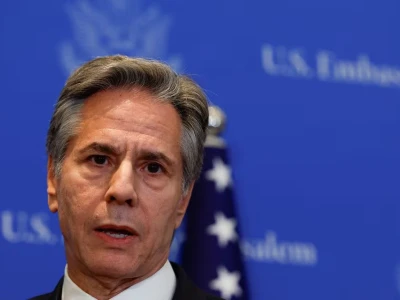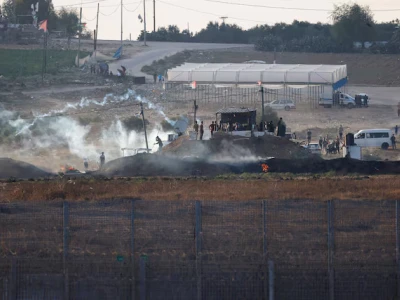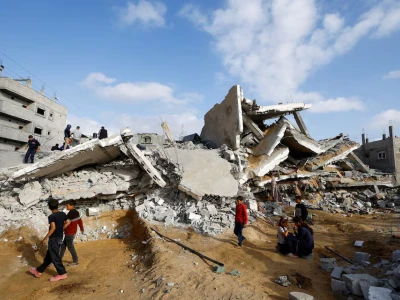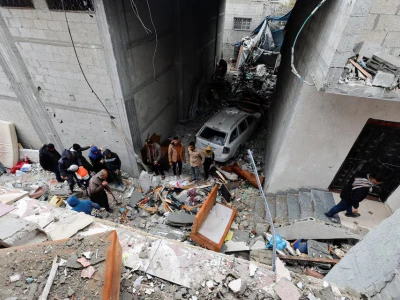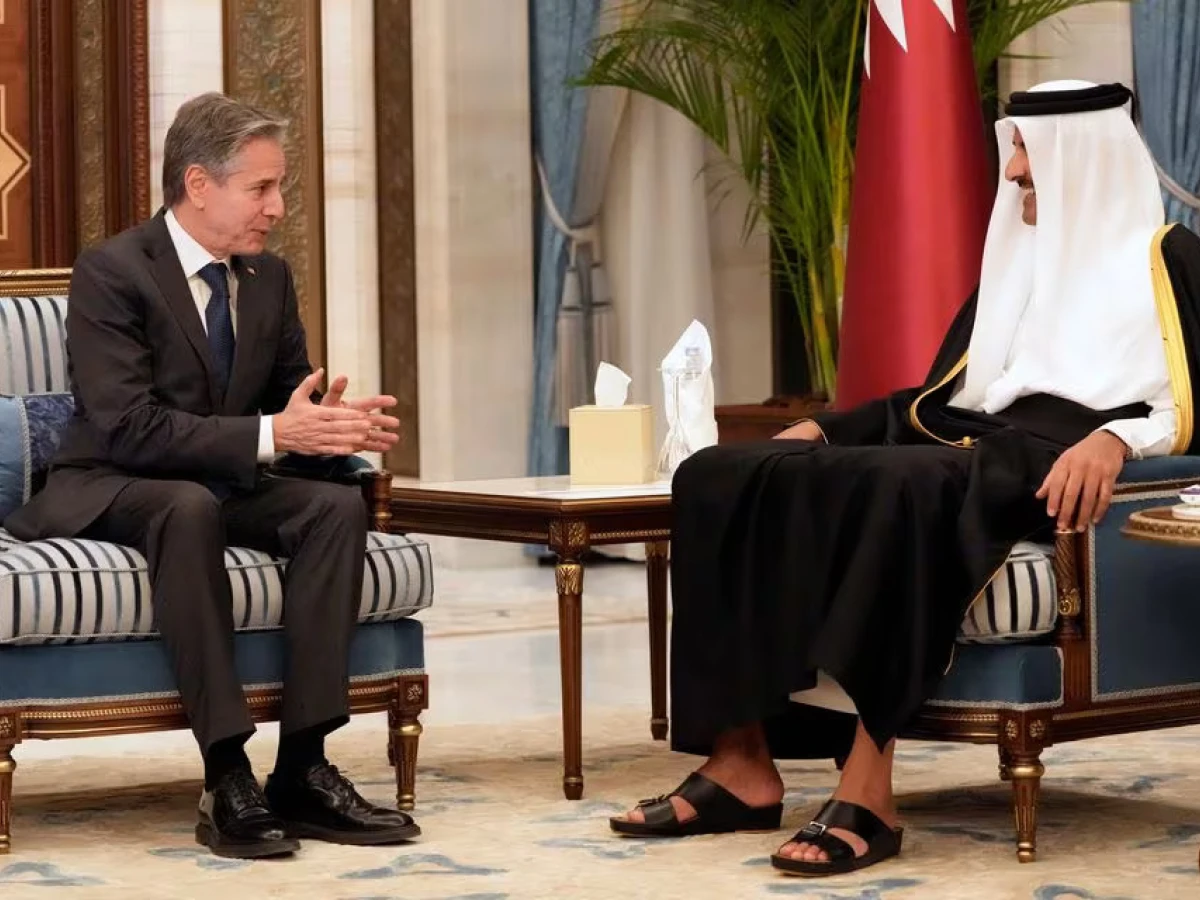
Hamas responds to Gaza truce deal, Blinken says agreement 'possible'
Sheikh Mohammed described the Hamas response as "positive" overall but also declined to give any details.
DOHA/GAZA, Feb 6 (Reuters) - The Palestinian militant group Hamas said on Tuesday it had delivered its response to a proposed ceasefire deal for Gaza that would also involve the release of hostages, and the United States said it still believed an agreement was possible.
Details of the response were not immediately available.
In a statement Hamas said it responded "in a positive spirit, ensuring a comprehensive and complete ceasefire, ending the aggression against our people, ensuring relief, shelter, and reconstruction, lifting the siege on the Gaza Strip, and achieving a prisoner swap."
Senior Hamas official Ghazi Hamad told Reuters in a text message that Hamas aims for the release of the largest possible number of Palestinian prisoners in Israel.
The Israeli prime minister's office said late on Tuesday that the details of the Hamas response were being "thoroughly evaluated by the officials involved in the negotiations".
U.S. Secretary of State Antony Blinken, on a lightning tour of the Middle East, said he would discuss the Hamas response with Israeli officials when he visits the country on Wednesday.
However U.S. President Joe Biden, while acknowledging "some movement" on a deal, described the Hamas response as "a little over the top", without elaborating. "We're not sure where it is. There's continuing negotiations right now," he said in Washington.
In Doha, Blinken said, "There’s still a lot of work to do be done, but we continue to believe that an agreement is possible, and indeed essential." He spoke at a news conference with Qatari Prime Minister and Foreign Minister Sheikh Mohammed bin Abdulrahman Al Thani after Hamas delivered its response.
Sheikh Mohammed described the Hamas response as "positive" overall but also declined to give any details.
A Hamas official who asked not to be identified reiterated to Reuters earlier on Tuesday that the Palestinian Islamist movement would not allow any hostage releases without guarantees that the war would end and Israeli forces leave Gaza.
The proposed deal, drawn up more than a week ago by U.S. and Israeli spy chiefs at a meeting with the Egyptians and Qataris, would secure the release of remaining hostages held by militants in Gaza in return for a long pause to fighting.
Sources close to the talks have said the truce would last at least 40 days, during which militants would free civilians among the remaining hostages they hold. Further phases would follow, to hand over soldiers and dead bodies of hostages, in exchange for releases of Palestinians imprisoned in Israel.
HOSTAGES
Prime Minister Benjamin Netanyahu says Israel will fight on until Hamas is wiped out. But there is also a growing Israeli movement demanding more effort to bring the hostages home, even if that means a deal with Hamas.
A poll released by a nonpartisan think-tank, the Israel Democracy Institute, found 51% of respondents believe recovering the hostages should be the main goal of the war, while 36% said it should be toppling Hamas.
Israel's chief military spokesperson Rear Admiral Daniel Hagari said on Tuesday that 31 of the remaining hostages held in Gaza had been pronounced dead. Israel previously said 136 hostages were still being held in Gaza after 110 were released under the only truce agreed so far, in November when Israel also released 240 Palestinians it was holding.
Citing an Israeli assessment shared with U.S. and Egyptian officials, the Wall Street Journal reported that as many as 50 hostages could be dead, meaning about 80 hostages held by Hamas are still alive.
Israel began its military offensive in Gaza after militants from Hamas-ruled Gaza killed 1,200 people and took 253 hostages in southern Israel on Oct. 7.
Gaza's Health Ministry says at least 27,585 Palestinians have been confirmed killed in Israel's military campaign, with thousands more feared buried under rubble.
Israel, which is pressing on with its offensive deep into parts of the Gaza Strip now sheltering hundreds of thousands of people displaced from earlier fighting, said its forces had killed dozens of Palestinian gunmen in the past 24 hours.
Palestinians hope Blinken's diplomatic push will nail down a ceasefire before Israeli forces storm the southern town of Rafah, where more than half of Gaza's 2.3 million people are now sheltering, mainly in public buildings and tents made from sheets of plastic, hard against the border with Egypt.
RELENTLESS PRESSURE
Israeli forces on Tuesday kept up pressure on Khan Younis, the main southern city they have been trying to capture for weeks. Aerial and tank bombardment thundered through the city overnight, with at least 14 people killed by air strikes since the pre-dawn hours, Palestinian residents and medics said.
Rafah, just south of it, was also hit by air strikes and tank shelling. Two people were killed in a strike on a house in Rafah while six policemen died after their car was hit, Gaza health officials said.
Israeli leaders say Rafah is now a bastion of Hamas combat units and vowed last week to push into the town next, alarming international aid agencies who say a million displaced civilians would be in harm's way, pinned against the border fence.
Mahmoud Amer and his family had pitched their tent in a cemetery in Rafah, hoping they would be safer living among the dead, including the war's victims in freshly dug graves.
"It's better than living in residential areas where the houses could collapse on our heads," said Amer. "There is no water, no proper aid coming in. The situation is so bad. The dead are in comfort, while we, the living, are in pain."
